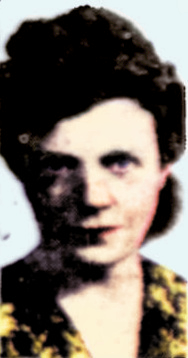The Pittsburgh Press (October 22, 1941)

I DARE SAY —
Escape
By Florence Fisher Parry
So I went into the little neighborhood lending library to get a book, knowing perfectly well that by the time I’d remember to return it I’d have paid for it twice over.
I said to the young woman:
I’m looking for a blood-curdler.
She asked me:
Murder or ghost?
Both if possible. Something quite terrible.
If I didn’t get away from it all, I couldn’t be held responsible for my actions.
I picked up a lovely title: Murder for Pleasure – only to find that it was a treatise. It went into crime fiction in a scholarly way.
I begged:
Haven’t you anything sort of Lizzie Borden?
She shook her head. She mourned:
The crime writers can’t seem to compete with what’s happening. I can give you some whoppers – only there’s non-fiction: Scum of the Earth, That Day Alone, A Thousand Shall Fall…
So I went away with Louis Adamic and Arthur Koestler and Pierre van Paassen under my arm. But you can’t say I didn’t try.
American formula
The movies have the formula: happy endings at all cost. Never mind if it’s a screen adaptation of Dante’s Inferno, it has to have a happy ending.
We have to hold on to our sanity somehow; and so far the movies provide the best prescription yet written. The theater tries, heaven knows. But its audience is a drop in the bucket. And so far as the books are concerned, 98 out of 100 Americans buy one book or less a year. So the book writers don’t need to be escapists and provide opium for the masses.
I’m trying to remember what we were reading about this time during the last war. Richard Harding Davis was about our speed then, and he perfumed up even the smell of the dead and managed to make war seem splendid. Today our book marts are jammed full of literature that crawls with vermin and stinks with putrefaction. The writers don’t spare us: they’ve been there, the most of them. And what they’re setting down constitutes the greatest piece of reporting ever done. It’s just too bad if you can’t stomach their books; for they’re the best by far that we’ve had in America since Edgar Allan Poe.
Here are some of them:
Scum of the Earth. It was written by Arthur Koestler. He was in the concentration camp of Vernet, where human beings had reached the stage:
…where a man could be told without irony that he should be thankful to be shot and not strangled, decapitated or beaten to death…
He tells about Dachau, too.
In Vernet, beating up was a daily occurrence; in Dachau, it was prolonged until death ensued. In Vernet, people were killed for lack of medical attention; in Dachau, they were killed on purpose. In Vernet, half the prisoners had to sleep without blankets in 20 degrees or frost; in Dachau, they were put in irons and exposed to the frost.
If you read Koestler’s novel, Darkness at Noon, of course you will read this report of what’s going on in France – today – for escapist though you wish to be, this man’s writings draw like a magnet, and celebrate man’s spiritual endurance as do few books about the war.
The most exciting chapter in Pierre van Paassen’s That Day Alone is that in which he describes General Weygand. And we feel a growing nightmarish horror as we remember how we hung on the radio, only a year ago, in the desperate belief that this Frenchman could somehow perform the miracle and save France.
Now we learn, through this passionate Dutchman van Paassen, that Weygand’s every act, every purpose, every plan, was and is today to destroy and keep destroyed the republic for which he presumably was fighting to save!
Van Paassen’s concept of Weygand as a sinister traitor to France offers one of the most searing pictures in contemporary reporting and commentary.
I have not yet read Two-Way Passage by Louis Adamic; but glancing through its contents I discern the same, almost naive, idealism which runs through most of this ardent young man’s writings.
Dangerous doctrine
So it would seem that there is no escape for us who read, except into a reality even more poignant than that in which we ourselves are imprisoned. Occasionally the mind demands respite of an antic nature, and then it is that we rush to the movies to see Abbott and Costello or a tough murder mystery like Maltese Falcon. Or, for the restless ones, the “partying” that is making New York the hottest nightspot it has ever been.
Myself, I find this hectic pursuit after unreality almost more taxing than the fact itself… And even more – truly alarming. The happy solution in all our movies and our pulp magazines; the eleventh-hour-triumph-over-all-odds which attaches to our comic strip heroes has become a national ailment. Nothing-can-happen-to-us is our formula. It is the attitude of England exaggerated a thousand fold!
It is evident in our legislation: we hang onto the Neutrality Act even as we break it. It is evident in our administration’s whole policy of eating and keeping the cake of security. It is evident in our comics, magazines, theaters and movies.
Only in our books, the books of non-fiction which unsparingly tell us that escape is mirage, do we find true perspective. They are the only fact-facers.